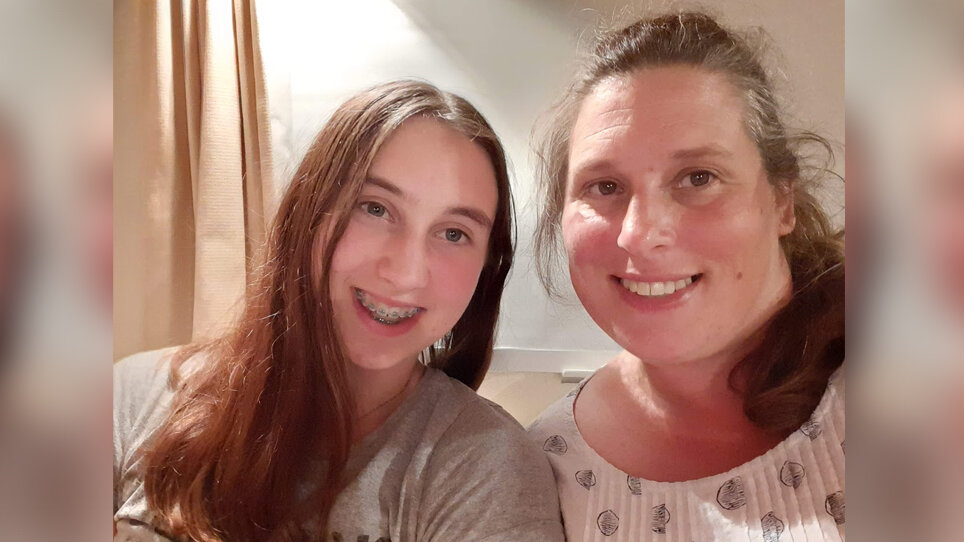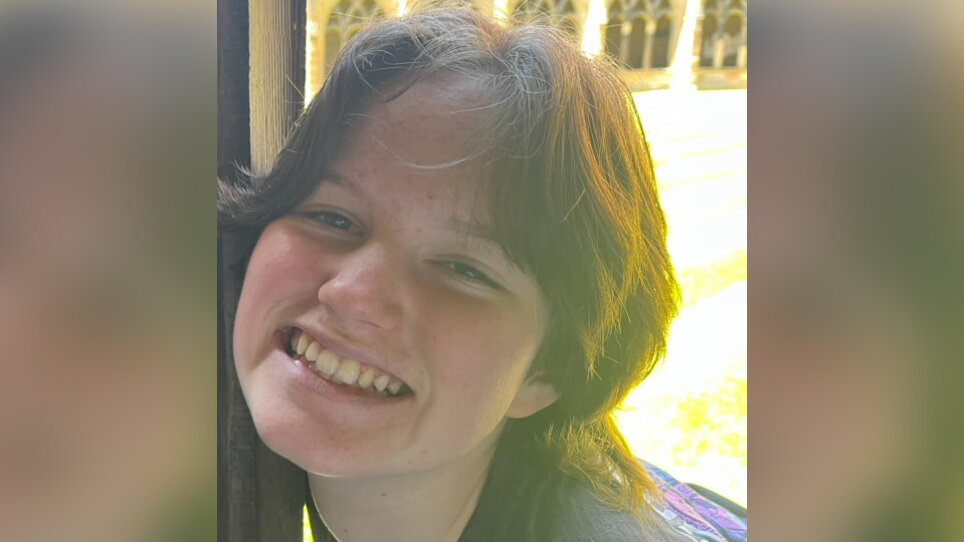A Constant Fight report launch
Published on 23 January 2025

Our charity has published a new report which highlights the fights and waits autistic people face to get support. More than 2,000 campaigners have joined us to call for the new Government to tackle inequalities faced by autistic people.
The new report, A Constant Fight: The Reality of Autistic People's Struggle for Support Across Health and Social Care, Education, Employment and Mental Health, highlights how autistic people are bearing the brunt of broken systems across society, and includes stories of those let down by a lack of support. The report is written by autistic staff at the National Autistic Society.
More than 2,000 people have asked their MPs to attend our event in Parliament on Thursday 23rd January 2025, to launch the report and hear directly from autistic people about the struggles they face.
What are the issues?
The report highlights stark realities for autistic people:
- Autistic people die around six years earlier than the general population, and autistic people who also have a learning disability die up to 15 years earlier.
- Four out of five (80%) autistic adults report difficulty visiting a GP.
- There are 2,050 autistic people and people with a learning disability in mental health hospitals in England, and 1,410 (69%) of these are autistic.
- Only three in 10 (30%) autistic people are in employment, the lowest of any disability.
- Almost three in four parents (74%) think their children’s school place doesn’t meet their needs.
- A third of parents of children with Special Educational Needs and Disabilities (SEND) had to use the legal system to get provision, yet 99% of tribunals find in parents’ favour.
- As of September 2024, over 204,000 people were waiting for an autism assessment in England.
- 89% of people have been waiting for an assessment longer than the NICE recommended 13 weeks. Many wait years for a diagnosis.
Getting a diagnosis
An autism diagnosis can be transformational. It can help people understand themselves and be understood by others and, while it shouldn’t be, it is vital for getting the right support. Getting a diagnosis is often lifechanging, and for some it is lifesaving but people have to wait months, and often years for an assessment.
Diagnosis services have not kept up with increased demand, with 204,876 people waiting for an autism assessment in England as of September 2024. Most autistic people receive little to no support before or after diagnosis and are ultimately left to fend for themselves in overstretched, inaccessible public services.

Lauren
Lauren is an autistic woman who was diagnosed as an adult. She shares the impact of years of being misunderstood, misdiagnosed and missed opportunities for support.
Lauren said: "As a Black woman, having been diagnosed as autistic later in life, my journey highlights the pervasive barriers that marginalised groups face within the UK’s health and social care systems. For years, my behaviour and experiences were disbelieved and misinterpreted, resulting in misdiagnosis, missed opportunities for support and health inequalities that significantly impacted my quality of life. My autistic traits were often dismissed or pathologised, with professionals attributing my struggles to other factors rather than recognising them as part of a neurodevelopmental condition. Autism, especially in Black women, is still not widely understood or acknowledged, leading to years of misunderstanding and structural neglect."
School
In schools, autistic students and their families are not getting the support they need. There are 230,000 autistic pupils in England, but only a quarter (26%) feel happy at school, while three in four (74%) of parents and carers say their child’s school place does not meet their needs, and a quarter (26%) of families have waited over three years for support for their child.
Increasingly, families must turn to SEND Tribunals to fight for their child’s rights because local authorities don’t have the capacity or funding to support the implementation of Education, Health and Care Plans (EHCPs). Yet, a shocking 99% of SEND tribunal cases find in favour of parents, proving how the system is failing families who should have been listened to in the first place.

Jen and Sharren
Jen was an autistic teenager who took her own life at the age of 17 in 2021, after years of struggling at school and with her mental health. The inquest said that multi-agency systemic failures to work together contributed to Jen’s death.
Jen’s mother, Sharren, said: "Jen’s schools didn’t seem to fully understand the EHCP process, nor how important having an EHCP is for a child both in and outside of school. Jen didn’t get an EHCP until she was 15, five years after her first diagnosis, and over a year after her first disclosing a suicide attempt.
"The evening before Jen’s final, devastatingly successful attempt on her life, I asked her if she wanted to go to the hospital for help. Her reply was ‘No Mummy, there’s no point, they never have and they won’t this time’."
Health
Autistic people experience some of the greatest health inequalities in society, and are more likely to experience both chronic physical health conditions and mental health conditions. Autistic people die around six years earlier than the general population, and autistic people who also have a learning disability die up to 15 years earlier. Despite this, getting access to the right healthcare support, from routine GP appointments to specialist advice and treatment for co-occurring chronic conditions can be a fraught process.

Rosie
Rosie is autistic and has experienced difficulty accessing healthcare due to a lack of understanding about autism.
Rosie said: "The fear of being misunderstood permeates every medical encounter, leaving me wracked by anxiety and often on the verge of tears. This fear distracts from legitimate medical concerns, as any worries I raise are credited to my obvious anxiety, delaying investigations and labelling me as a ‘difficult’ patient when I insist my experiences are more than my imagination.
"It shouldn’t have to be this hard, this often. Autistic people should be able to access healthcare without the realistic fear of their voices being lost or misinterpreted."
Mental Health
There are 1,430 autistic people in mental health hospitals in England, and only 14% of autistic adults said there were enough mental health services in their area to meet their needs. Services are rejecting referrals for autistic people and failing to take responsibility. This leads to autistic people being bounced around between services. In many local areas, there is no alternative if a service cannot provide support.

Raivyn
Raivyn has experienced a lack of the right mental health support and was admitted to a psychiatric hospital.
Raivyn said: "Professionals heard my words but didn’t understand or offer support, so I fell further into despondency while professionals labelled me as a high functioning complex case and put me on waiting lists. Riskier cries for help ended in numerous hospital admissions thinking I was beyond saving - all because no one understood me.
“If professionals took the time to look at my case holistically and had more knowledge about what treatments work best for autistic people, I think it would help to restore faith in the system and prevent avoidable hospitalisations."
Employment
In the workplace, three in 10 (30%) autistic people are employed. They face significant barriers to finding and staying in work, including a lack of autism understanding, experiences of discrimination, and a lack of support and adjustments.
Mel Merritt, Head of Policy and Campaigns at the National Autistic Society, said: "Autistic people and their families face a constant fight for support, from diagnosis and education to healthcare, mental health support, employment and beyond. It means a child can’t get an autism assessment and, because they can’t get a diagnosis, they are denied support at school. Then they leave school and can’t get a job or proper health or mental health care. The constant fight is exhausting, it’s blighting autistic people's lives and can ultimately have devastating consequences.
"We urge the new Government to keep autistic people at the heart of reforms so it can achieve its mission of breaking down barriers to opportunity, building an NHS fit for the future and kickstarting economic growth. Systems that work better for autistic people are likely to work better for everybody."
What is the solution?
Autism needs to be a policy priority for the new Government. As this report sets out, autistic people face some of the greatest inequalities in society across health and social care, education, employment and mental health. Autistic people’s experiences represent a key test of public policy – if you can make the system work for autistic people, it is likely to work better for everybody.
The National Autistic Society is calling for:
- Diagnosis: Urgent ring-fenced funding, as well as a long-term funding commitment to stabilise the national model in the short term and lay the foundations for innovation, testing and evolution. The National Autistic Society proposes an investment of £1.3 billion over the next 15 years to evolve the assessment process.
- Education: Alongside funding needed for the broken SEND system, we need to see: autism training to be made mandatory for all school staff; improved commissioning of school places to address the growing problem of a lack of appropriate school places for autistic students; and joined-up work between schools, local authorities and health and social care services.
- Mental health: There are many small changes that can be made to improve mental health services, but additional investment in community services is vital. The recently introduced Mental Health Bill cannot be implemented in full, nor can it be effective in achieving better mental health outcomes for autistic people, without significant investment in preventative mental health care.
- Healthcare: Healthcare must be made truly accessible for everyone, including autistic people. The Government must make sure that autistic people are fully involved and included in the NHS 10-year plan. All healthcare staff should have completed the Oliver McGowan Mandatory Training on Learning Disability and Autism.
- Employment: Our goal is to halve the autism employment gap and see 60% of all autistic adults working by 2030. Research by Pro Bono Economics suggests that doubling the autism employment rate would generate benefits of up to £1.5 billion each year, adding 100,000 extra workers to the workforce and increasing their economic contributions significantly.
Further information
- Read the A Constant Fight report.
- Find out more about our campaign work and sign up for updates.
